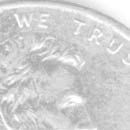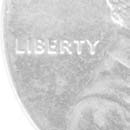I.O.U.S.A. (56 page)
Authors: Addison Wiggin,Kate Incontrera,Dorianne Perrucci
Tags: #Forecasting, #Finance, #Public Finance, #Economic forecasting - United States, #General, #United States, #Personal Finance, #Economic Conditions, #Economic forecasting, #Finance - United States - History, #Debt, #Debt - United States - History, #Business & Economics, #History

8/26/08 7:03:15 PM
224 The
Interviews
basis of tax cuts. I told him I thought it would really be great if he would say to Congress when he appeared before the committees that it would be of great utility to have some triggers so that in the event economic conditions turned against us and revenues fell away, that we would have those revenues back. That was an abhorrent idea, especially to the supply - side ideologues who thought no tax cuts were useful unless they were permanent, and
[that it was] especially important to make cuts in the marginal tax rates.
Now I honestly agree that there ’ s a great economic utility to cutting marginal tax rates, but I don ’ t believe you can consistently ignore the abomination that is now our tax system and get away with endless marginal tax cuts without doing something about the base monstrosity that we have. So I thought it made sense and there was some movement in the Congress to actually put some triggers into the fi rst tax cuts so that we would have a revenue recovery in the event the economy turned against us. There was some entertainment of that idea, but it got washed away in the rush to give people tax cuts. I think it ’ s regrettable that that happened. Things might have turned out differently if the tax cuts hadn ’ t gone on when the economy started working away from us.
Q:
Correct me if I ’ m wrong — he was practically still testifying
when most of the journalists had left the room to say tax
cuts, tax cuts, tax cuts, and they didn ’ t want to hear the “ with
prudence ” part of his testimony?
Paul O ’ Neill: I think if you go back and review the transcript of what Alan said to the members of Congress, he gave them, as he always does, a very balanced set of recommendations about
“ Yes, we can afford tax cuts right now, but we need to be prudent in how we do this. ” But President Bush 43 had built up the momentum that his fi rst agenda item was going to be signifi cant and major tax reductions, and he was hell - bent to do it and there was no serious legislative impediment. It was only a question of how fast.
c16.indd 224
8/26/08 7:03:15 PM










Arthur Laffer
Arthur Laffer is a supply - side economist who gained recognition as a member of President Reagan ’ s Economic Policy Board. He is best known for popularizing his
Laffer curve,
an economic theory that illustrates income tax elasticity.
Q:
What is it about economics that interests you?
Arthur Laffer:
Economics is all about human behavior. It ’ s the allocation of resources. It ’ s where prosperity and people ’ s happiness really emanates. It ’ s a wonderful, wonderful fi eld to be involved with.
Q:
Why don ’ t we start with tax cuts? Why do you believe tax cuts are
good for the economy?
Arthur Laffer:
Sometimes tax cuts are good for the economy, and sometimes they ’ re not. You obviously have to have taxes to collect the requisite ward revenues, so that government can do what it ’ s supposed to do. But sometimes governments behave excessively and raise taxes way beyond what they should. Then tax cuts are really benefi cial. The U.S. today is a lot better off than we were, let ’ s say, when John F. Kennedy took offi ce in 1961. At that time, we had the highest federal marginal income tax rate, 91 percent. And
that
had been lowered from almost 93 percent by Harry Truman.
So, you know, it ’ s crazy, but taxes can get way out of hand if people don ’ t understand them.
Let me explain to you tax cuts and explain to you what you want to look at. Let me just do it simply by looking at the capital gains tax today and historically. If we were to lower the federal capital gains tax rate, the evidence suggests that revenues would rise. In fact, almost every time over the past 30 or 40 years that the federal capital gains tax rate has been lowered, revenues increase. Almost 225
c17.indd 225
8/26/08 8:20:21 PM
226 The
Interviews
every time the federal capital gains tax rate has been raised, revenues decline. If you collect fewer revenues by raising the tax rate, what on earth is your reason for raising that tax rate? Not only are the people who invest worse off, but those people who are the benefi ciaries of government spending are also worse off.
